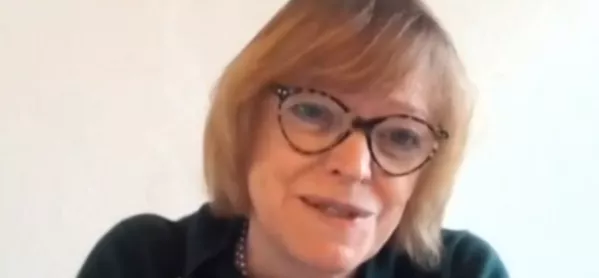Teachers should not create portfolios of student work as a basis for GCSE and A-level assessment next year, Ofqual said this morning.
In a meeting with the Commons Education Select Committee, Ofqual’s interim chief regulator, Dame Glenys Stacey, said the idea “worried” her and urged teachers not to do it.
Exams: Covid impact may be flagged next to grades
GCSEs 2021: Teachers may have to quantify learning loss
Related: Secrecy over DfE Covid disruption advice
There is the potential problem that some students could end up missing all possible exam papers in a GCSE or A level without non-exam assessments and would therefore need a “validated” teacher-assessed grade.
But Dame Glenys told MPs: “I would really urge schools not to do anything now - schools and teachers do not need to start building portfolios of evidence now.”
She said this approach would be an “opt-in” choice for students at the time.
Ofqual: Teachers shouldn’t use ‘precious time’ building student portfolios
Asked whether schools should be working towards an assessment portfolio now, she said: “It [portfolios] worries me greatly and I do hear from schools that teachers, until they have certainty, have been doing this, and I would encourage them not to.
“I do not see any prospect of us relying on, retrospectively, work undertaken by students, because students tell us they regard that as unfair because at the time they were doing that work they weren’t doing it for the purpose of assessment.
“It is not the right answer, and also it’s just taking up so much precious time of teachers - I really would urge them not to do that.”
Dame Glenys added that mock exams were seen as an unreliable basis for assessment.
“Mock exams, as we reflected on last summer, are very different one from another - sometimes they are done just to cover work already taught; for example, sometimes it’s the whole curriculum so there isn’t one notion of a mock exam we could rely on,” she said.
“And, indeed, in all of our conversations with the sector, very little support for it - much more support for what we’re doing now and also having that contingency reserve paper after the exam series.”
